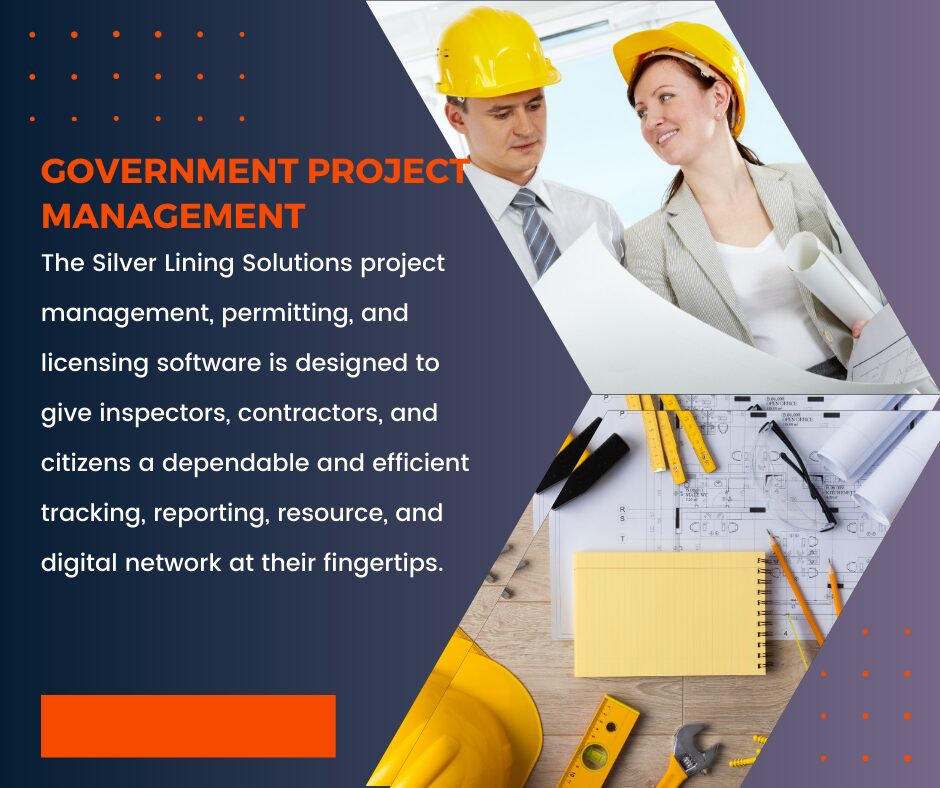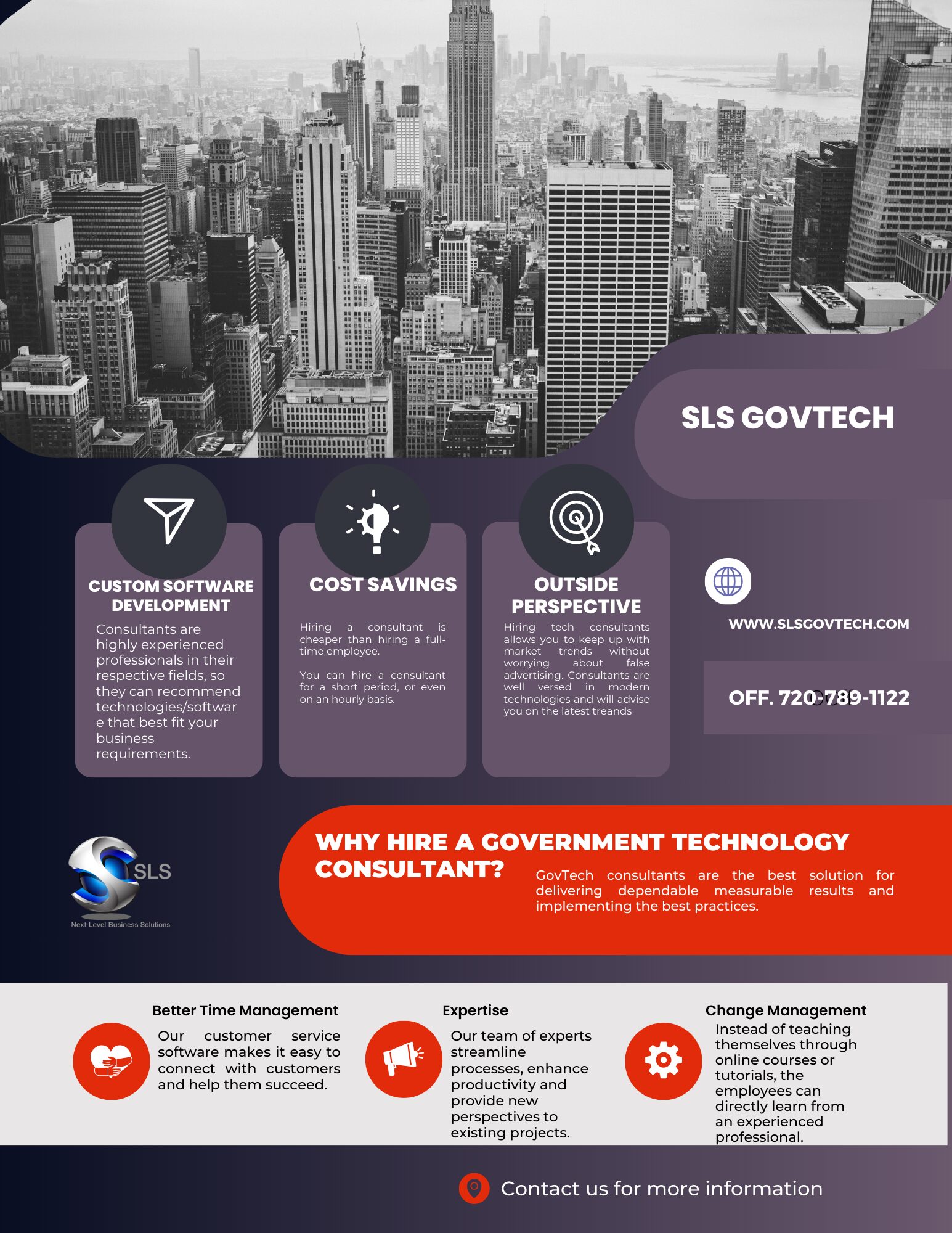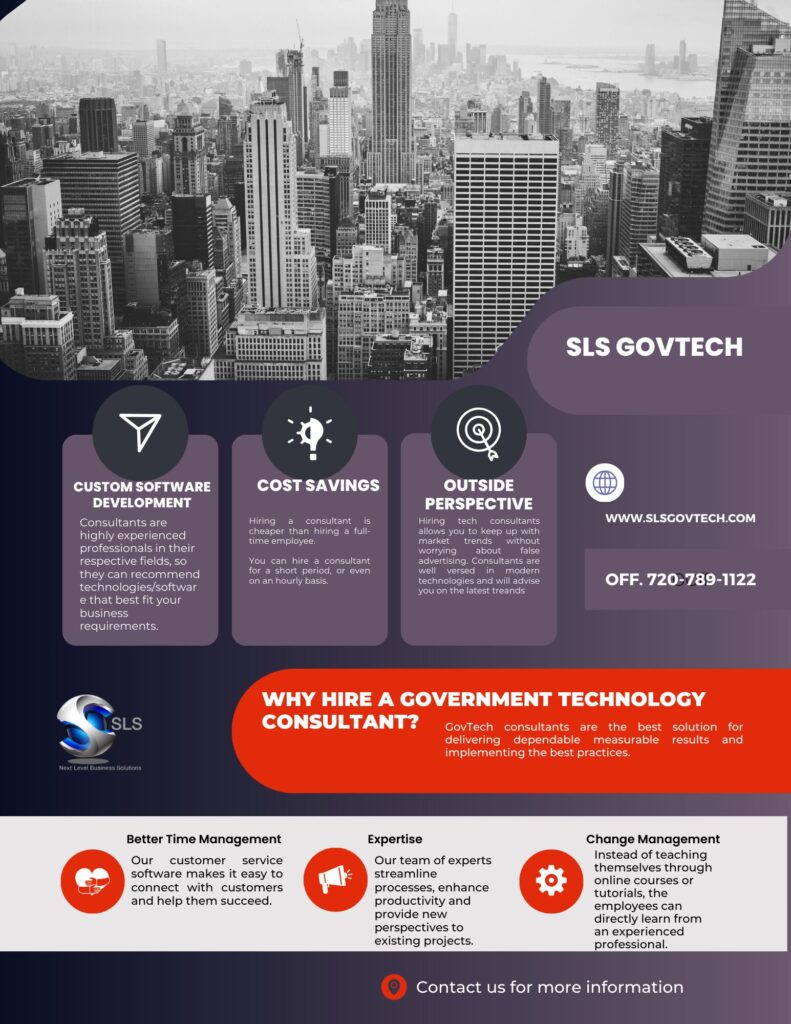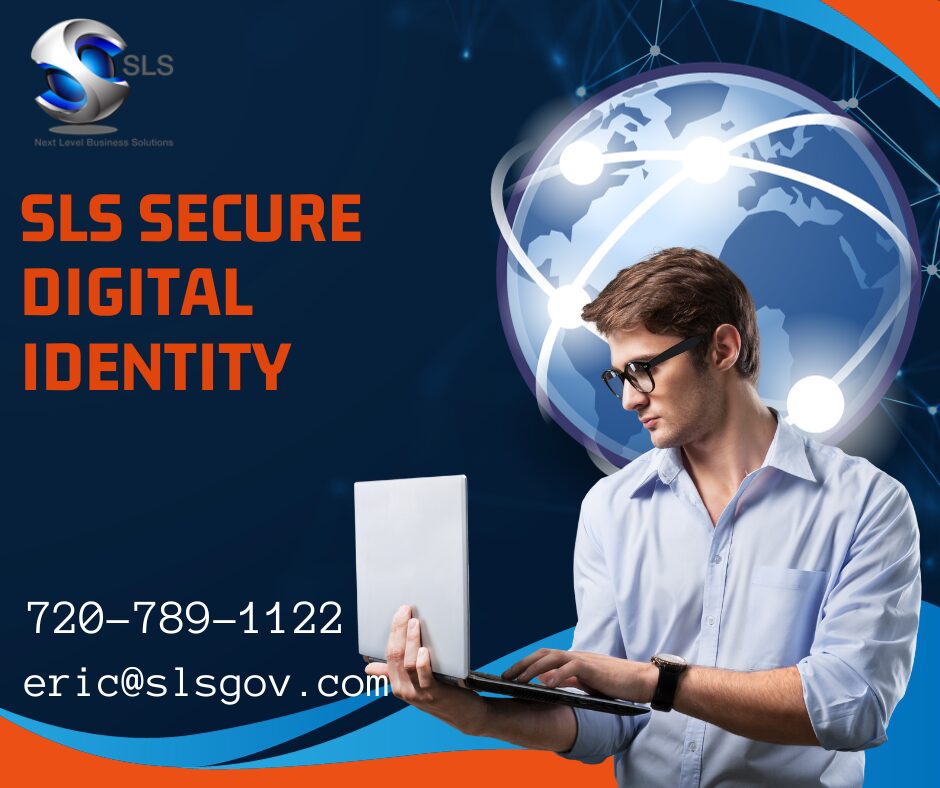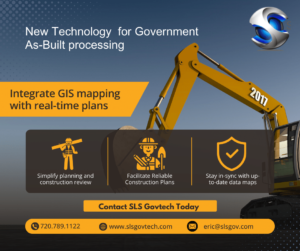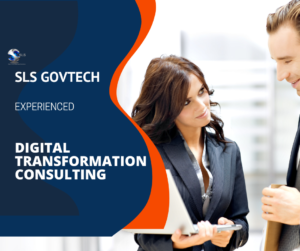The principles of government technology (GovTech) are game-changers. GovTech operates under several critical guidelines to significantly enhance government services, efficiency, and citizen engagement through technology. This pioneering innovation is the driving force behind today’s local, county, and state governments. SLS technology ensures that the government better serves and meets the needs and expectations of the agency and its community. Additionally, the principles of government technology, such as the citizen-centric approach, focus on prioritizing citizens’ needs over technology. Furthermore, this government technology helps to involve the local community and develop smart city services. Lastly, citizen-centric govtech is designed to be user-friendly, accessible, and cater to diverse user demographics.
GovTech promotes transparency by making government data open and accessible to the public whenever possible. Open data and transparency allow citizens to understand government operations better and make informed decisions. Government technology solutions aim to integrate and work seamlessly across different government departments and agencies. Interoperability reduces duplication of efforts, improves data sharing, and enhances overall efficiency. More importantly, these technology solutions aim to integrate and work seamlessly across different government departments and agencies. Interoperability reduces duplication of efforts, improves data sharing, and enhances overall efficiency.

GovTech Security
Given the sensitivity of government data, GovTech initiatives prioritize robust cybersecurity measures and adherence to privacy regulations. Protecting citizen data from breaches and unauthorized access is crucial.
Citizens entrust their personal information to government entities for various services. Protecting this data builds trust and confidence in government operations and fosters positive relationships between citizens and their government. Moreover, governments have legal obligations to protect citizen data under various data protection laws and regulations. Failure to do so can result in legal liabilities, fines, and damage to the government’s reputation. Citizens’s personal data, such as Social Security numbers, addresses, and financial information, can be used for identity theft and fraud if accessed by unauthorized parties. Protecting this data minimizes the risk of such crimes affecting citizens. Data breaches and unauthorized access can disrupt government operations and compromise the delivery of essential services to citizens. Robust data protection measures ensure operational continuity and minimize disruptions.
In addition, some government data, such as defense information and critical infrastructure details, are vital to national security. Protecting this data from breaches and unauthorized access is crucial to safeguarding national interests. GovTech initiatives can promote innovation in service delivery and data-driven decision-making by ensuring strong data protection measures. Citizens are more likely to participate in digital government services if they trust their data is secure. Finally, implementing robust cybersecurity measures protects citizen data and demonstrates the government’s commitment to cybersecurity best practices. This fosters a culture of security awareness and responsibility across government agencies.
We form a partnership to better serve you and your community;
By forming a partnership with SLS GovTech, government agencies can access cutting-edge technologies, expertise, and innovative solutions they may not have internally. Through GovTech initiatives, government agencies can pilot and test new ideas, technologies, and approaches in a controlled environment. This experimentation helps agencies evaluate innovative solutions’ feasibility, effectiveness, and scalability before full-scale implementation. GovTech collaborations often involve sharing data and researching with academic institutions and organizations. This data sharing facilitates evidence-based decision-making and allows for developing data-driven solutions to complex societal challenges. Overall, GovTech encourages innovation within government agencies by leveraging external expertise, fostering collaboration across sectors, promoting experimentation and piloting new ideas, and supporting entrepreneurship and policy innovation. These efforts contribute to developing more efficient, responsive, and citizen-centric public services.
Scalability accommodates a growing community;
GovTech solutions are designed with scalability to accommodate growing populations and changing needs. Additionally, there is a focus on sustainability, ensuring that technological solutions are environmentally and economically viable in the long term. Solutions are often developed with a modular architecture that allows components to be added or expanded as needed without requiring a complete system overhaul. Many GovTech solutions leverage cloud computing, which provides scalability by allowing resources to be dynamically allocated based on demand. This ensures that systems can handle increased data volumes and user interactions as populations grow. Moreover, by adhering to open standards and ensuring interoperability with existing systems, GovTech solutions can integrate smoothly across different departments and agencies. This flexibility supports scalability by facilitating seamless expansion and coordination of services.
Sustainability solutions to a better environment;
SLS GovTech emphasizes sustainability to ensure that technological solutions are environmentally and economically viable in the long term.
· Energy Efficiency: Our solutions prioritize energy-efficient technologies and practices to minimize environmental impact and reduce operational costs.
· Green Technology Adoption: Governments increasingly adopt green technologies in their IT infrastructure and operations, such as renewable energy sources and energy-efficient hardware.
· Lifecycle Considerations: GovTech solutions are designed with lifecycle considerations, including the responsible disposal of electronic waste (e-waste) and the use of sustainable materials in hardware procurement.
· Cost-Effectiveness: Sustainability in GovTech solutions also includes considerations of economic viability, ensuring that solutions provide long-term cost savings through efficient resource utilization and reduced maintenance costs.
GovTech initiatives incorporate long-term planning and future-proofing strategies to anticipate and adapt to future technological advancements and societal changes. This proactive approach helps governments stay ahead of emerging trends and challenges, ensuring that GovTech solutions remain relevant and effective over time. In summary, GovTech solutions are designed with scalability to accommodate growth and changing needs through modular design, cloud infrastructure, and interoperability. They also prioritize sustainability by adopting energy-efficient technologies and green practices and considering lifecycle impacts. These efforts not only enhance operational efficiency and service delivery but also contribute to environmental stewardship and economic sustainability in the long term.
Delivering effective, user-centric solutions;
These principles collectively support SLS GovTech initiatives in delivering effective, user-centric solutions that enhance government operations, foster innovation, and build trust with citizens. By leveraging technology and collaborative approaches, SLS GovTech aims to meet the dynamic demands of modern governance while driving meaningful improvements in public service delivery.
“Transforming Government Through Technology.”
#govtech
#governmenttechnology
#govtechsolutions
#greencitytechnology
#citizencentricetechnology
#digitalgovernment




